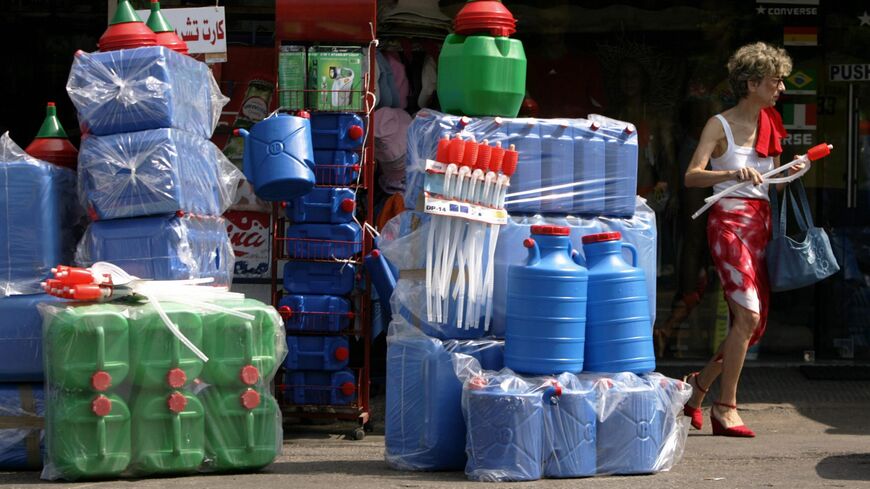Lebanon’s water
“The water sector is being squeezed to destruction by the current economic crisis in Lebanon, unable to function due to the dollarized maintenance costs, the collapse of the power grid and the threat of rising fuel costs,” she added.
“As access to clean water and energy diminishes daily, everyone in Lebanon is living the consequences, regardless of income.”
Most of Lebanon’s water is provided by four water establishments – North Lebanon, Mount Lebanon, Bekaa and South Lebanon – with the rest made up using water trucking, illegal tapping and private or municipal sources.
As fuel subsides continue to be lifted, UNICEF estimates that the establishments relying on fuel to run generators could cease operations in a matter of months in Beirut and Mount Lebanon, followed shortly by the rest of the country.
Some 1.7 million people could soon receive less than 35 liters of water a day, against Lebanon’s average rate per capita of 165 liters.
Though these people are in the highest critical category, about a further 2 million people are ranked between critical and highly critical water access.
Some areas of Beirut only receive water twice a week and as households start trying to reduce water consumption, the first thing affect is hygiene – one step closer to dangerous health hazards.
“The immediate adverse effect is on public health. Hygiene is compromised, and Lebanon would see an increase in diseases exacerbated by the dry season,” Higgins said.
“Women and adolescent girls are facing particular challenges to their personal hygiene, protection and dignity without access to safe sanitation.
“With COVID-19 cases on the rise again due to the Delta variant, Lebanon’s health system may be unable to cope,” she added.
The deteriorating crises in Lebanon and the government’s inability to handle them have led the country to an abyss with poverty rates exceeding 55% and over 50% of migrant workers unemployed, Euro-Mediterranean Human Rights Monitor said in a report last month.
The current situation might carry serious consequences on the lives and safety of millions living in the country, Euro-Med Monitor said.
Economic depression
During the past year, the country suffered economic depression caused by a 20.3% decline in GDP growth. In addition, inflation rates have reached more than 100%, while the exchange rate of the Lebanese pound has been witnessing an unprecedented deterioration, the organization said.
The prices of about 17 basic commodities, including vegetables, fruit, grains, meat, oil, dairy and dairy products, jumped by 350% due to the deterioration of the exchange rate of the lira against the dollar.
The report addressed the daily crises that the Lebanese suffer, such as fuel and electricity shortages and financial transfers to students abroad. In terms of bread prices, they have increased eight times just this year, bringing the price of a bundle of bread (876 grams) to 4,500 Lebanese liras ($3). Therefore, many Lebanese cannot provide enough bread for their families.
Euro-Med Monitor’s legal advisor, Tariq Hajjar, said, “The Lebanese government is obligated, according to the constitution and the human rights agreements it ratified, to provide a decent livelihood for its citizens, and to take all necessary measures to ensure that the citizens enjoy their rights, including food, health, security, work, financial transactions and other fundamental rights.”
The Lebanese authorities should develop an urgent action plan to address the main crises in order to prevent their further deterioration, Euro-Med Monitor said, adding that this plan must include parallel measures in various sectors to ensure an actual positive change in the lives of the Lebanese.























































